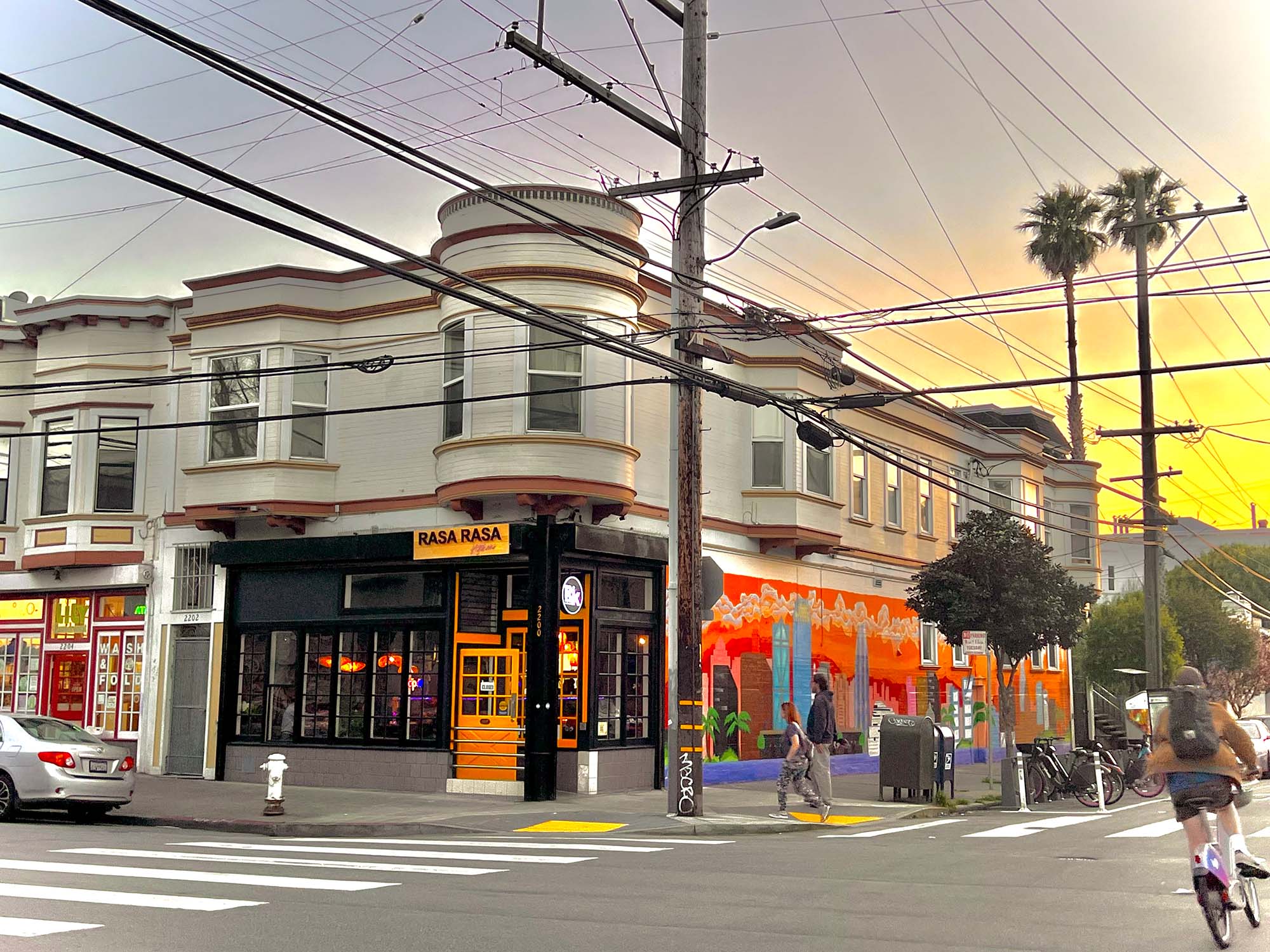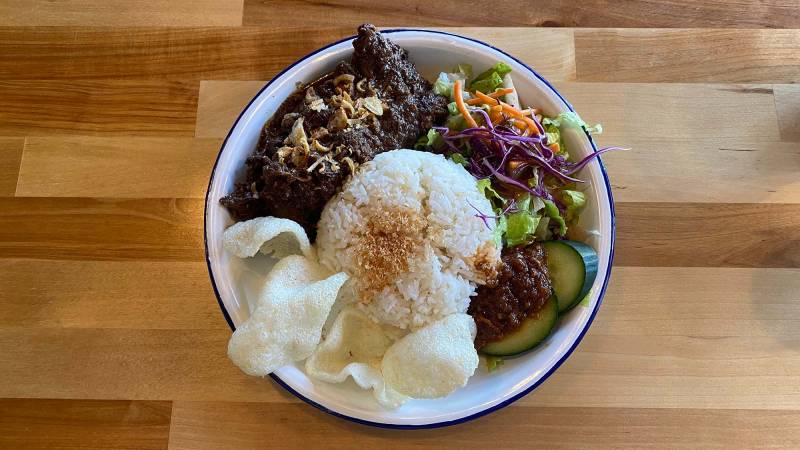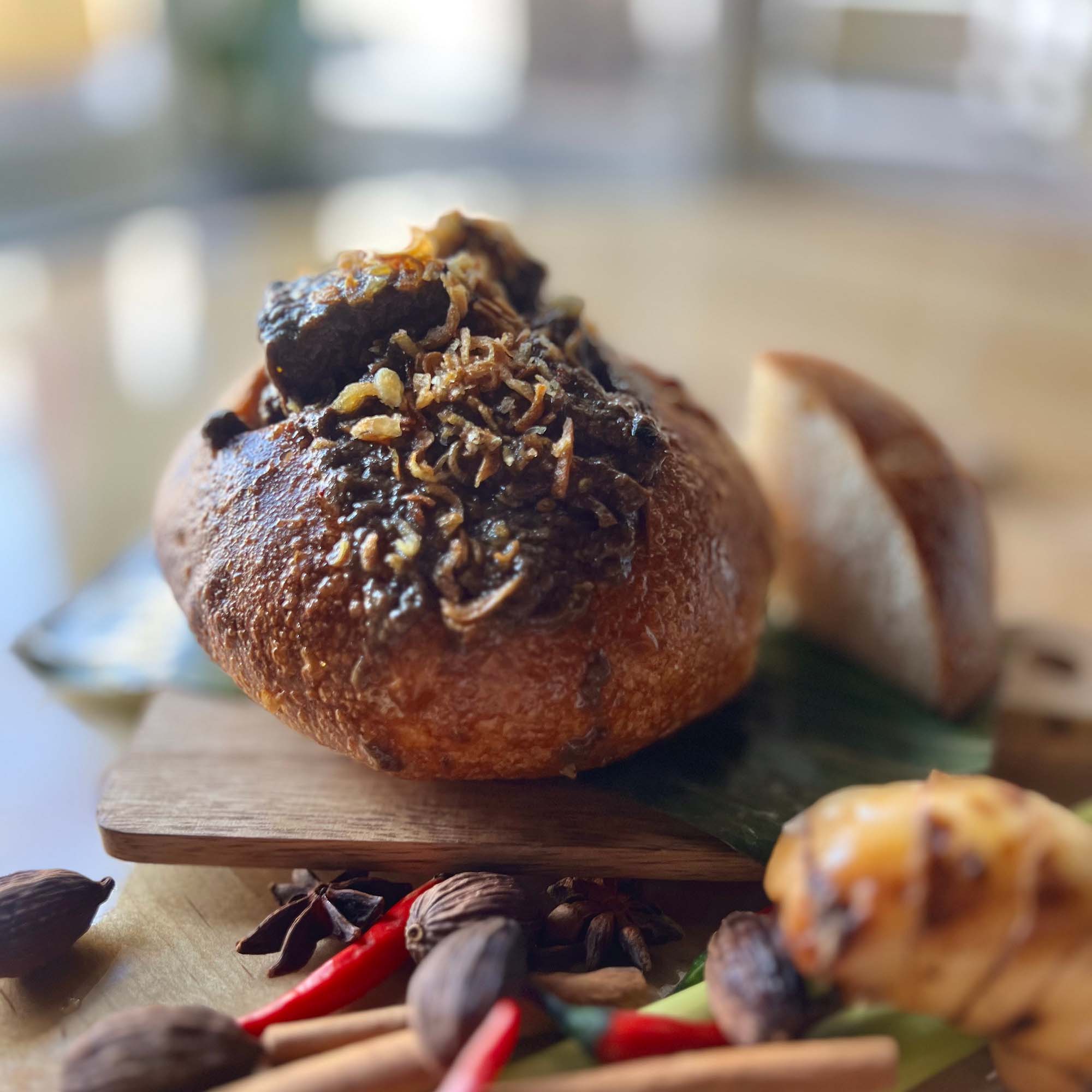In 2020 — March 5, to be exact — Joe Sharp and Patty Tang debuted Rasa Rasa, a shiny new food truck with a mission to initiate San Francisco diners into the bold, spice-forward universe of Indonesian home cooking — a universe populated by rich laksa noodle soups, fiery sambals and tenderly slow-cooked beef rendang.
Of course, we all know what happened next: Less than two weeks after the truck served its first bowls of laksa at the Parklab Gardens street food park in Mission Bay, COVID-19 pandemic shutdowns hit the Bay Area, and every food business in the region closed for the better part of three months.
There’s a sense of poetry, then, to the fact that Sharp and Tang opened their first brick-and-mortar restaurant, Rasa Rasa Kitchen, exactly four years after the truck’s debut. As of March 5, they’ve brought their home-style Indonesian cooking to a sit-down setting in the Mission, with a bigger and even more creative menu.
Looking back on those early months of 2020 now, Sharp says, “It was really tough, but we didn’t give up.” Thankfully, business picked up that summer, when everyone was going stir crazy and, for many San Franciscans, takeout from a food truck was the best available option. But in a very real sense, Rasa Rasa fought an uphill battle just to survive its first year.

For fans of Indonesian cuisine, the restaurant’s arrival is game-changing news. There have, of course, been a handful of Indonesian restaurants in the Bay Area going back as far as the early 1980s. But until the pandemic spurred a new wave of ambitious food trucks and informal pop-ups, the cuisine has largely languished in obscurity in our region. From the beginning, Sharp and Tang’s motivation has been to introduce Indonesian food to a wider audience — to, as Sharp puts it, prove to people that it’s “actually very tasty.”




